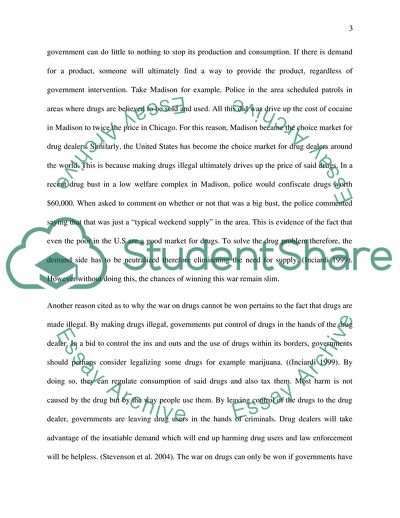Cite this document
(Can the War on Drugs Be Won Coursework Example | Topics and Well Written Essays - 2500 words, n.d.)
Can the War on Drugs Be Won Coursework Example | Topics and Well Written Essays - 2500 words. https://studentshare.org/social-science/1868696-can-the-war-on-drugs-be-won
Can the War on Drugs Be Won Coursework Example | Topics and Well Written Essays - 2500 words. https://studentshare.org/social-science/1868696-can-the-war-on-drugs-be-won
(Can the War on Drugs Be Won Coursework Example | Topics and Well Written Essays - 2500 Words)
Can the War on Drugs Be Won Coursework Example | Topics and Well Written Essays - 2500 Words. https://studentshare.org/social-science/1868696-can-the-war-on-drugs-be-won.
Can the War on Drugs Be Won Coursework Example | Topics and Well Written Essays - 2500 Words. https://studentshare.org/social-science/1868696-can-the-war-on-drugs-be-won.
“Can the War on Drugs Be Won Coursework Example | Topics and Well Written Essays - 2500 Words”. https://studentshare.org/social-science/1868696-can-the-war-on-drugs-be-won.


